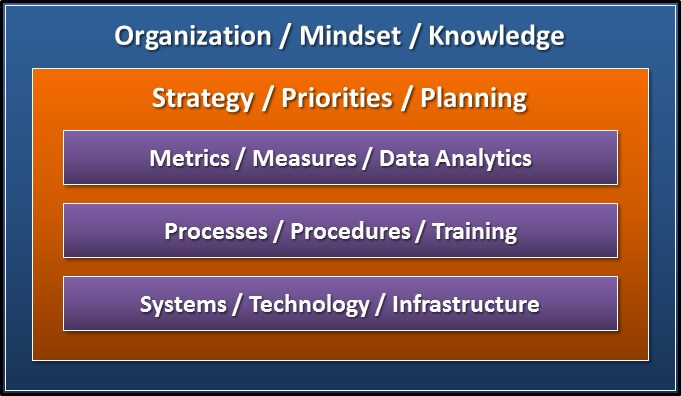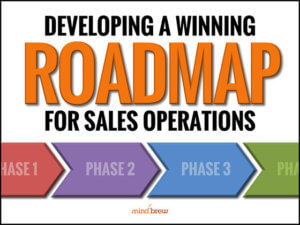Most sales ops organizations start out with an extremely tactical focus. In a typical scenario, something isn’t going well in sales, and management decides to set up a sales ops team in order to “fix it.” Often, the team comes into being in order to handle administrative tasks that the sales team doesn’t have the time or inclination to handle on their own. In other cases, groups initially concentrate on areas like metrics, training, managing the CRM platform or outbound communications.
It’s extremely rare—even unheard of—for B2B companies to set up a sales ops team in order to concentrate on strategy.
But the most effective sales ops teams are focused on strategy. The groups that have the biggest impact on their companies’ success are those that rise above day-to-day issues and do the big-picture thinking necessary to find and exploit opportunities in the market.
That means that most successful sales ops teams undergo a transformation where they switch from a tactical focus to a more strategic focus. And these transformations are smoothest when sales ops leaders approach the transition purposefully and thoughtfully.
Based on our research and interactions with sales ops teams that have already gone through this transition process, we recommend that sales ops teams develop a roadmap that focuses on five key areas:
1. Organization/Mindset/Knowledge—How much does your team know about how a strategic sales ops team functions? Do they have a mindset that enables them to understand what sales metrics are telling them about the business as a whole? Do they have the skills and abilities necessary?
This area of focus is the most important for a sales ops team because it affects all the others. Ideally, improving the organization, mindset, and knowledge of your team is an ongoing process that continues even after your strategic transition is complete.
2. Strategy/Priorities/Planning—The second most important use of your time is to determine which are the most important areas for your team to work on. In this focus area, you decide what you want the sales ops group to accomplish and why. This then forms the foundation for the three remaining focus areas, which are a little more tactical in nature.
3. Metrics/Measures/Data Analytics—Which things is your team going to measure? You can’t track everything, so you you’ll need to use your strategy from focus area two to guide your decisions about which data points you want your team to track.
4. Processes/Procedures/Training—This focus area concentrates on how you are going to accomplish your daily work. Again, your strategy is going to provide direction here, helping you decide which processes and procedures you need to put into place. In addition, your work on focus area one will help you determine where you might have gaps in your knowledge that could be addressed by particular training.
5. Systems/Technology/Infrastructure—Because so much of the sales ops job centers on crunching the numbers, choosing the right software for your team is a critical part of a strategic sales ops team’s responsibilities. And as you’ve probably already figured out, your strategy is going to help you determine which technology to deploy. You’re going to go looking for products and services that give you the capabilities to track and analyze the metrics that are essential for meeting your team’s goals.
As we already mentioned, two of these focus areas are more important than the other three. The graphic below can help you visualize the relationship among the various areas:

This diagram can help you prioritize your strategic sales ops work. The organization/mindset/knowledge work should be overarching and ongoing. It’s a force multiplier that can make the rest of your efforts more (or less) successful. The strategy/priorities/planning work is nearly as important and sets the stage for the other three areas of focus.
We talk a lot more about these five areas of focus in the webinar Developing a Winning Sales Operations Roadmap. It explains the process for becoming a more strategic team in more detail, including providing a sample roadmap and some tips for avoiding common mistakes along the way.











